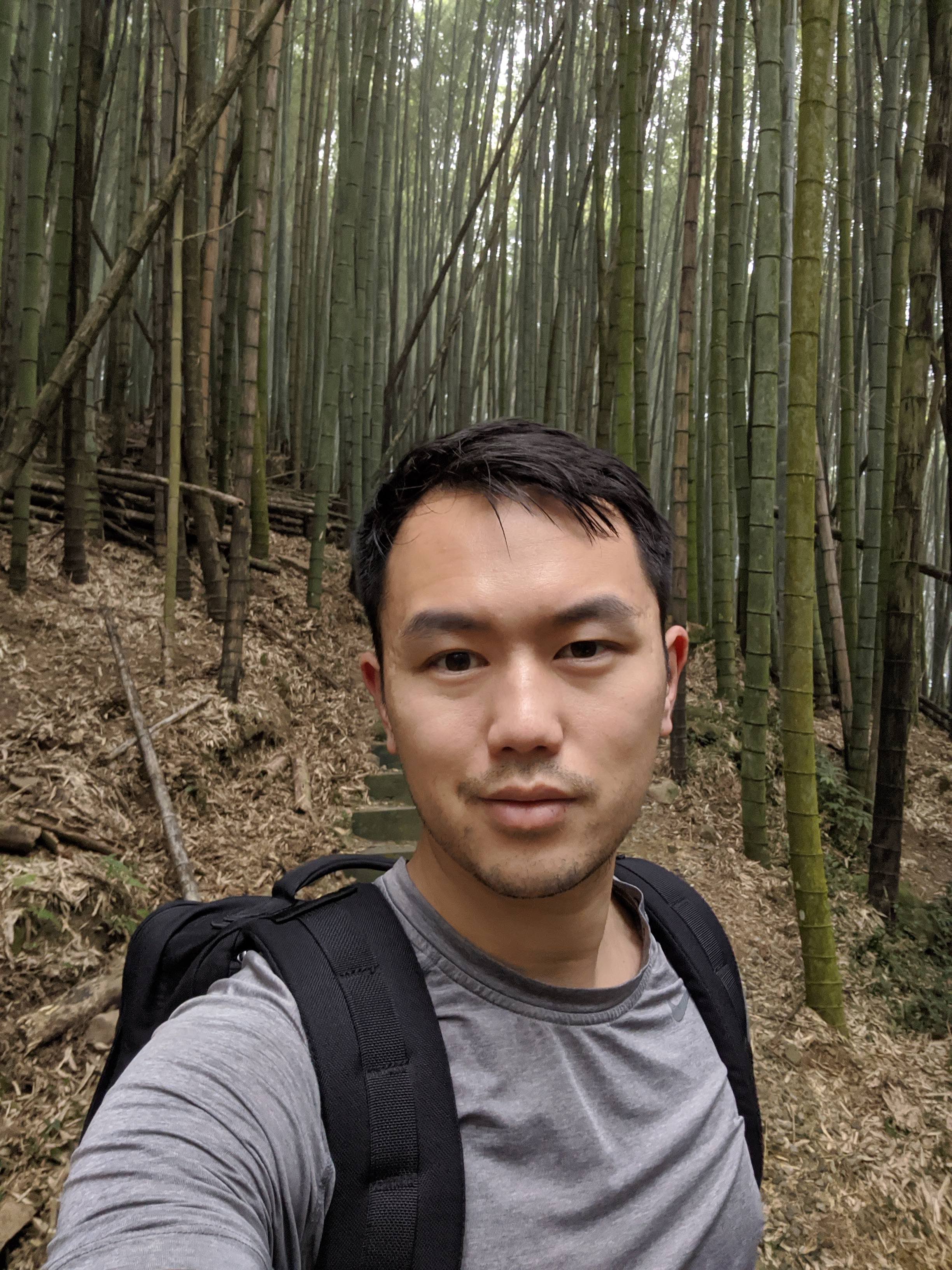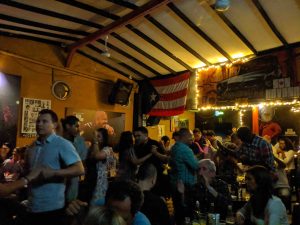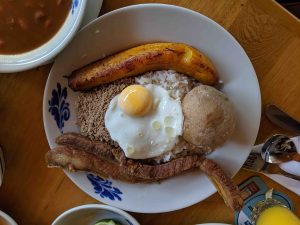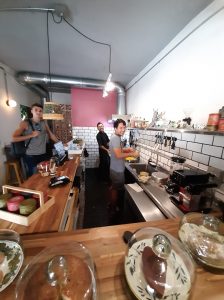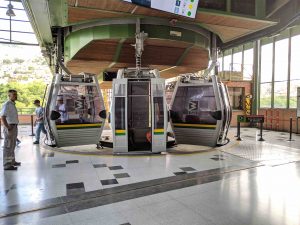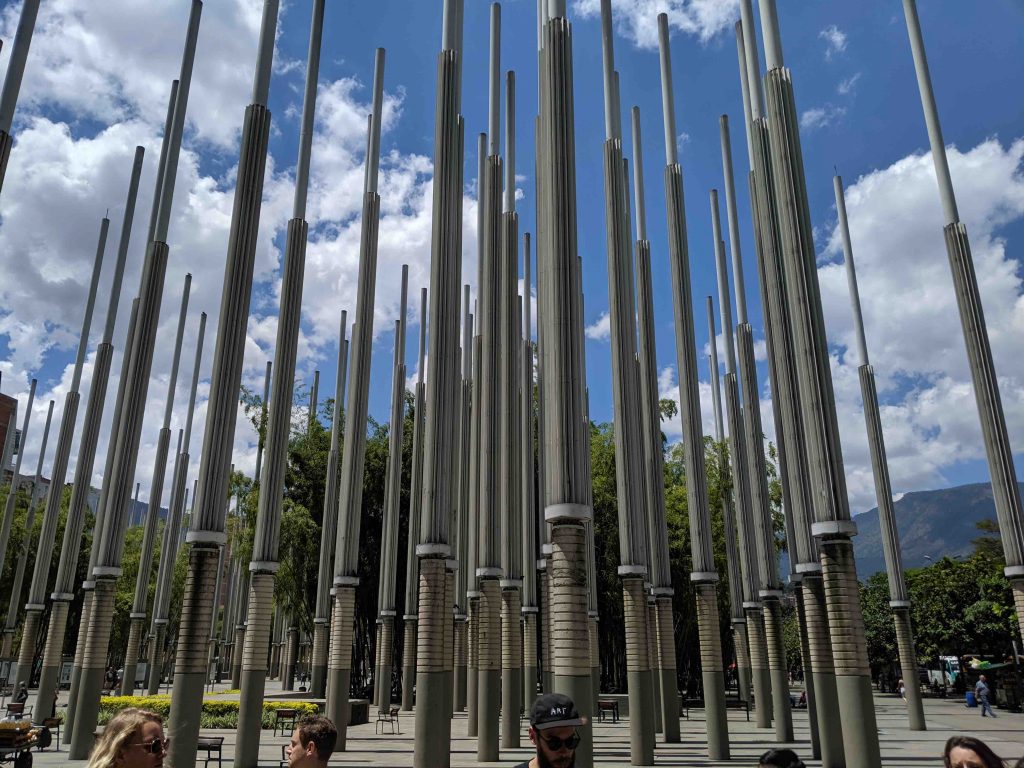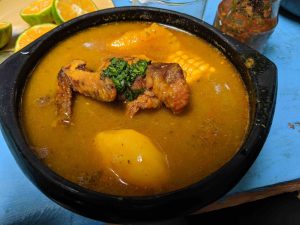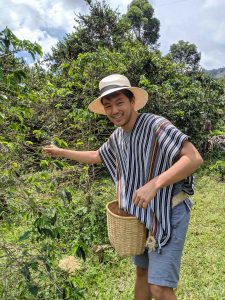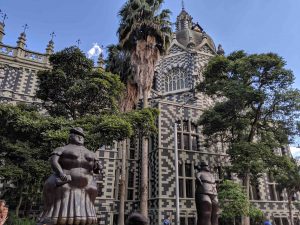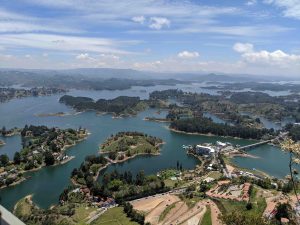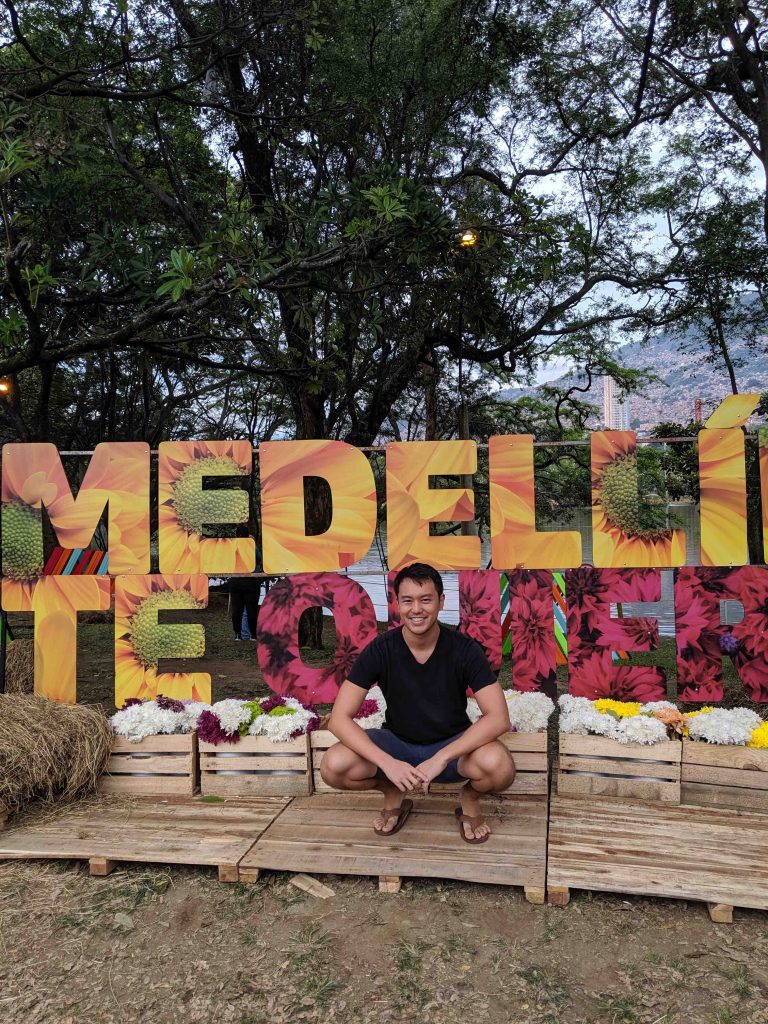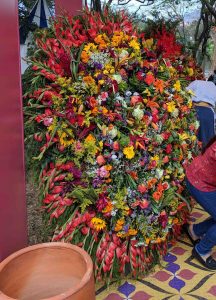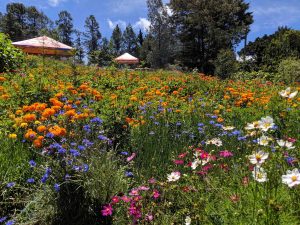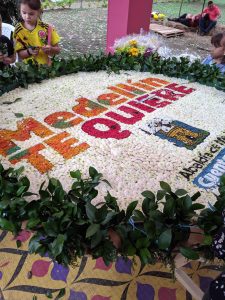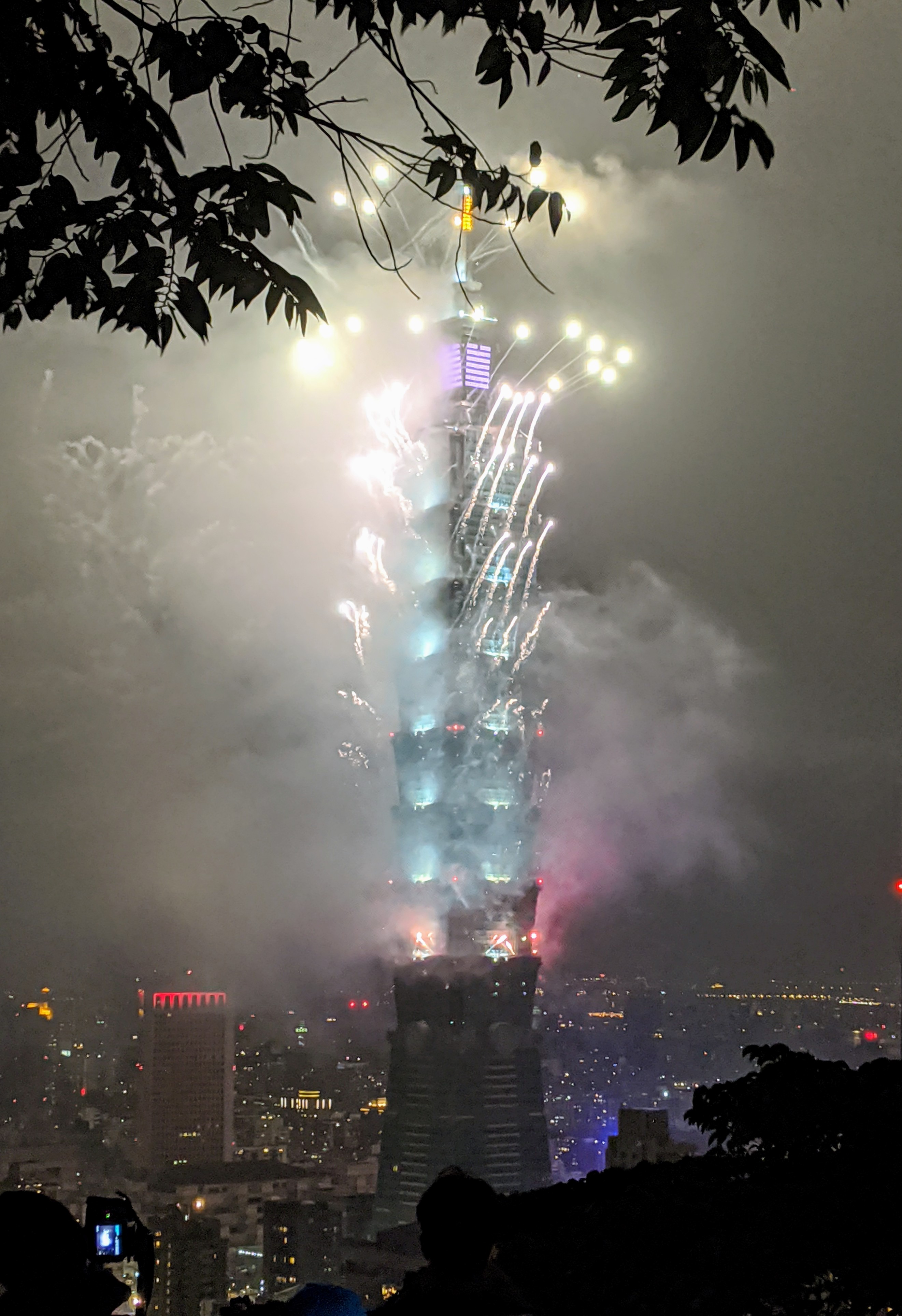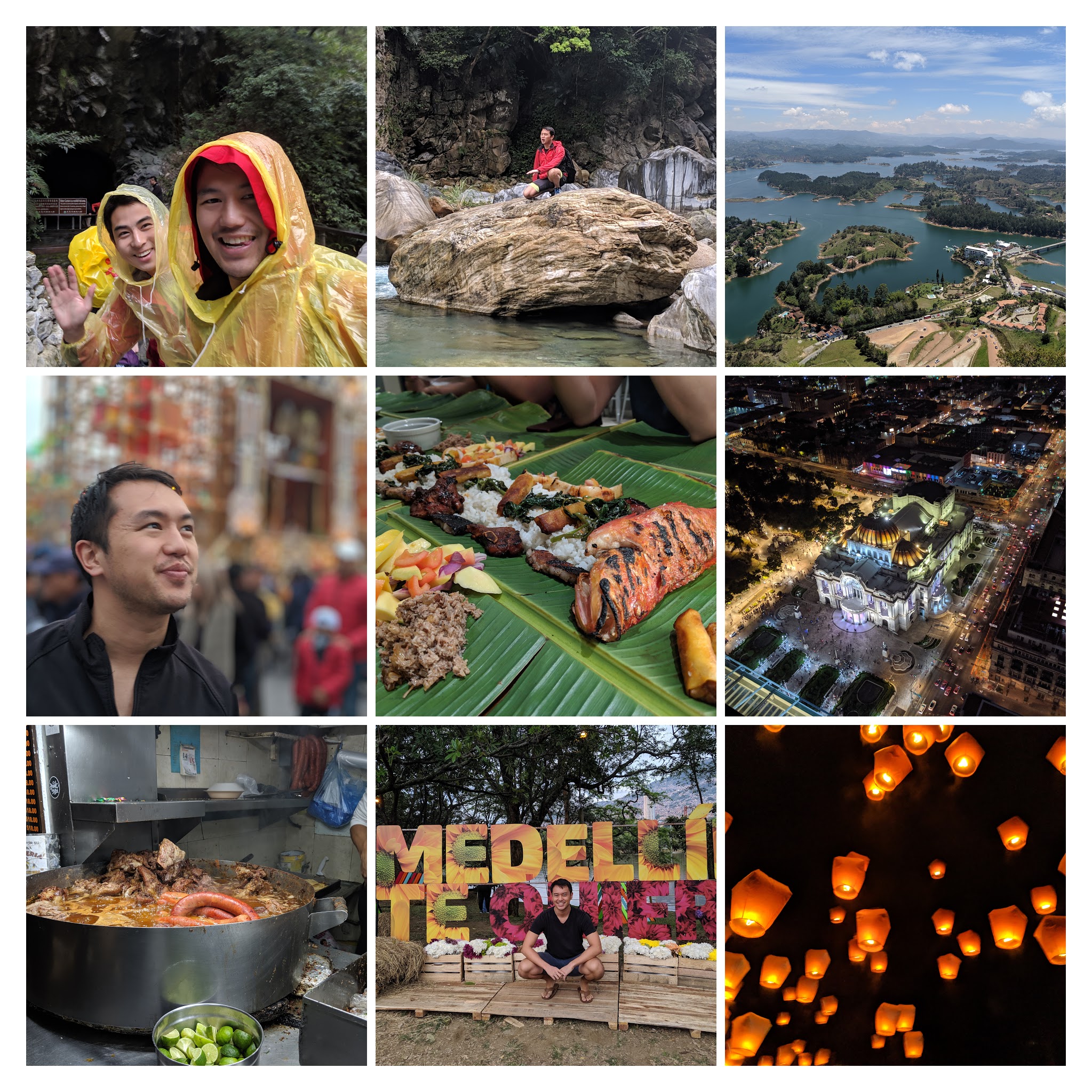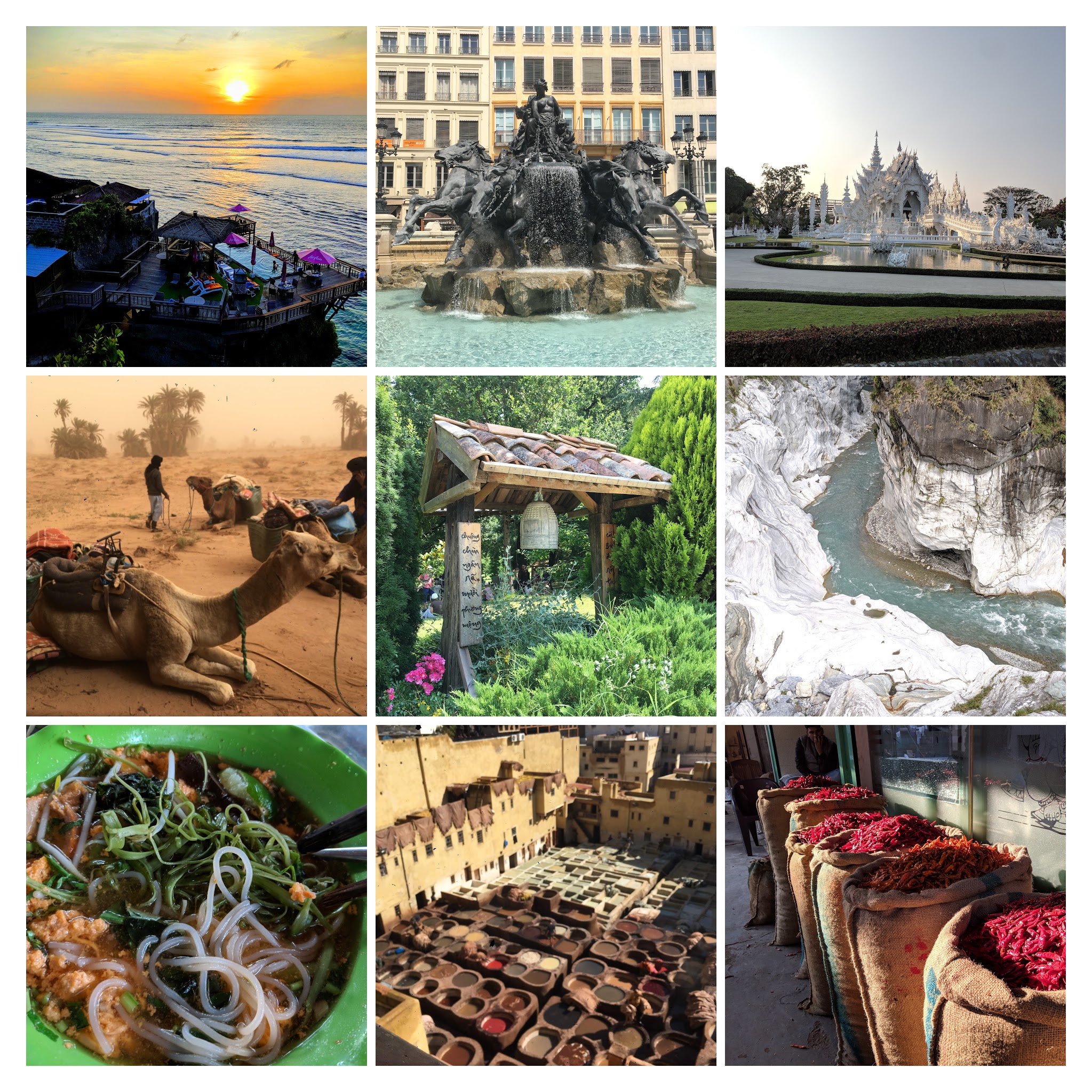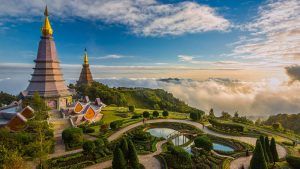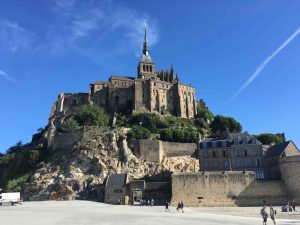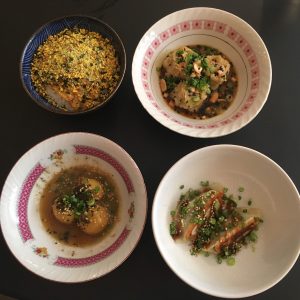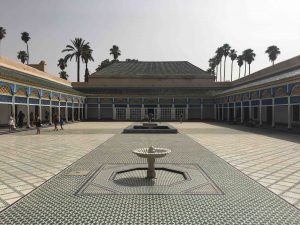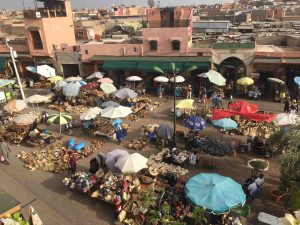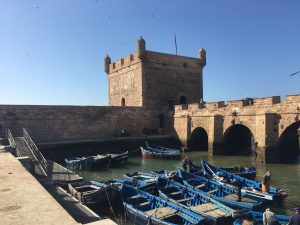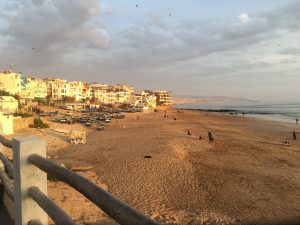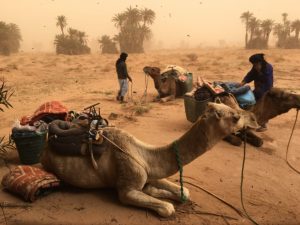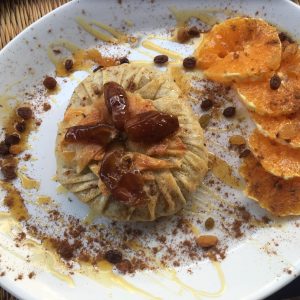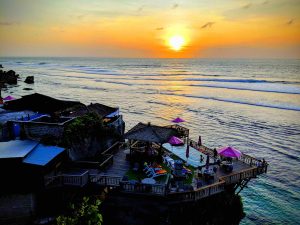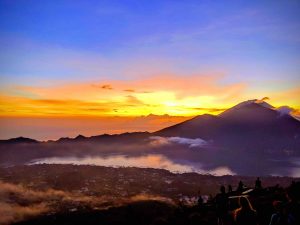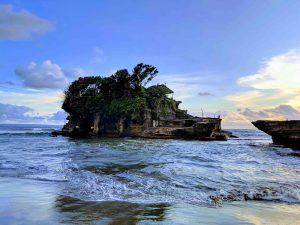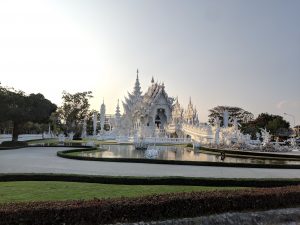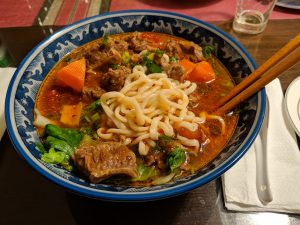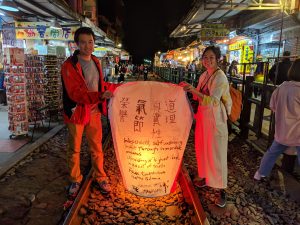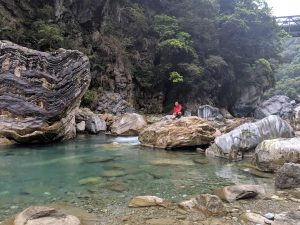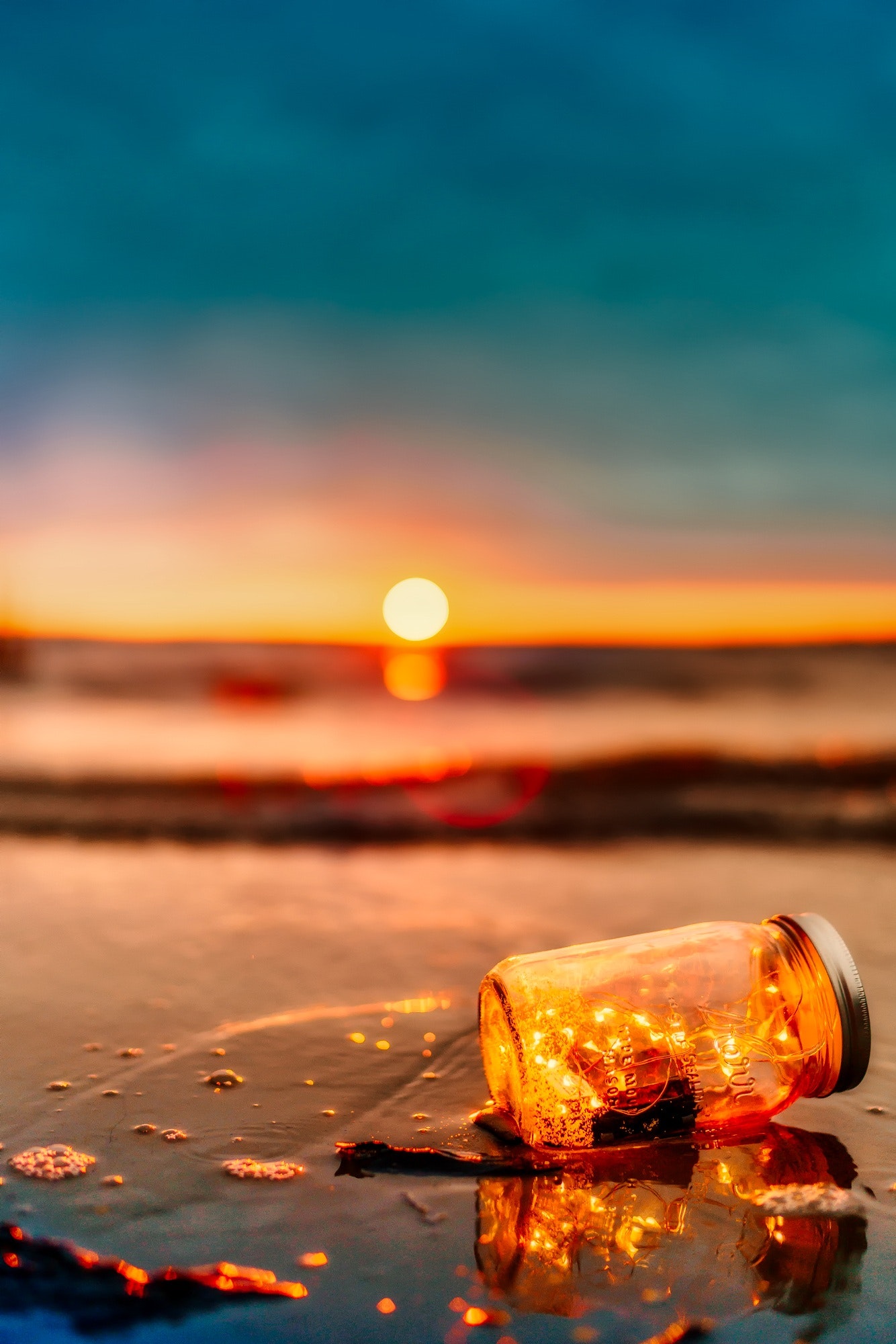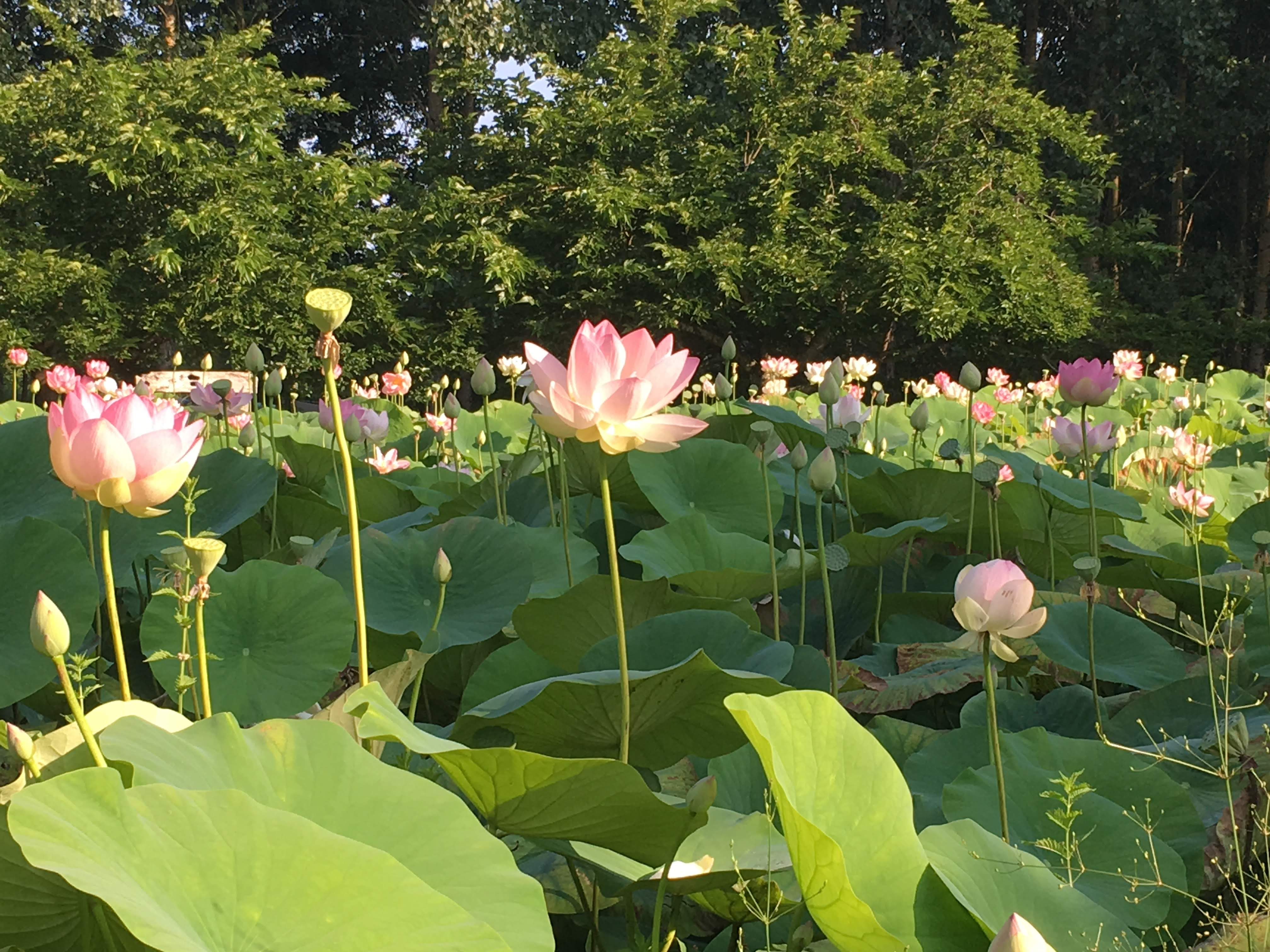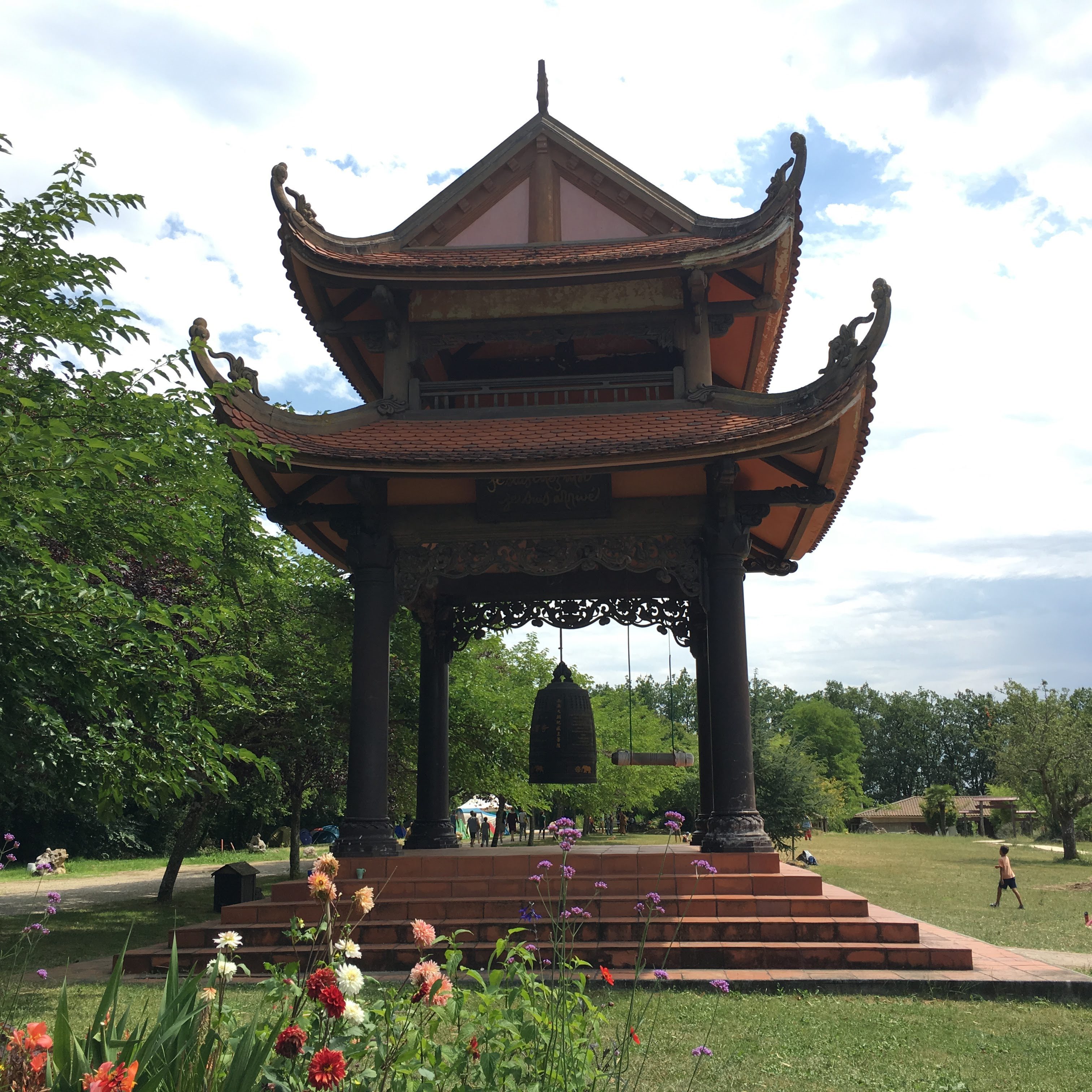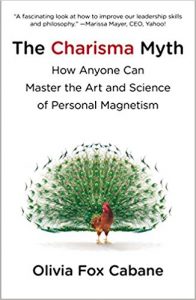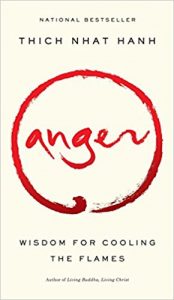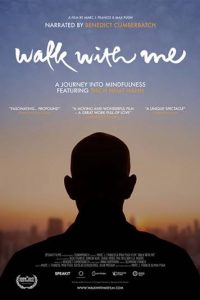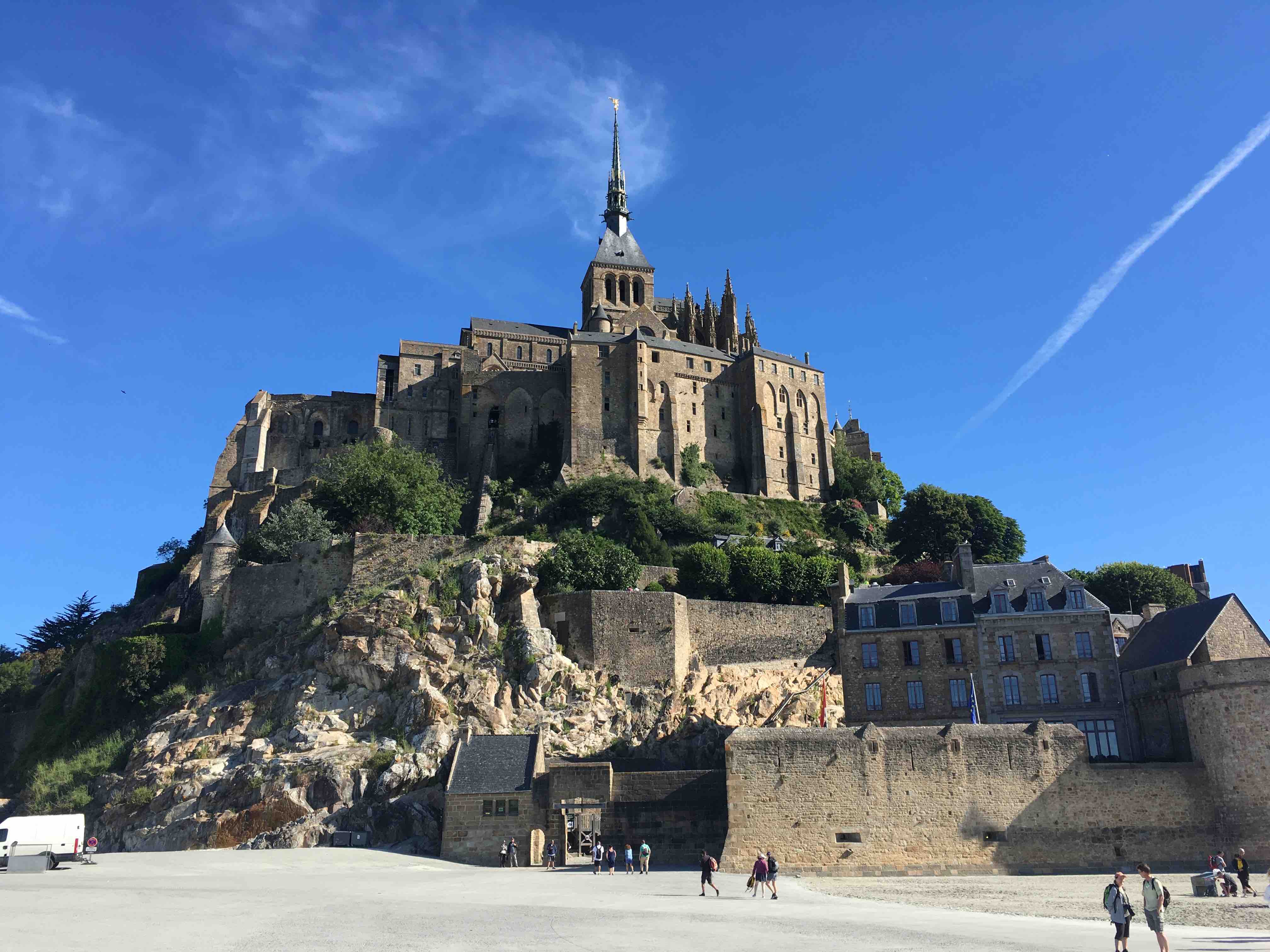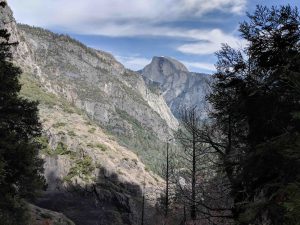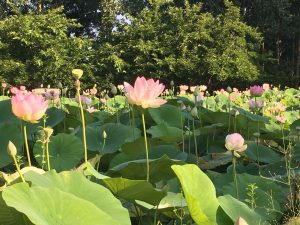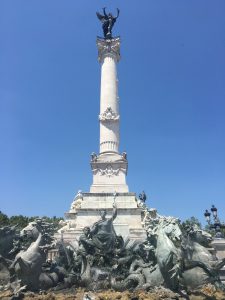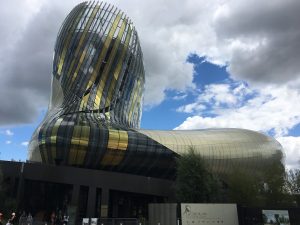I wrote last week about why I went to a Buddhist monastery. This week I’m writing about the experience itself.
I didn’t really know what to expect when I arrived at Plum Village, a mindfulness practice center and Buddhist monastery near Bordeaux, France, but I went in hoping to find some peace, to learn more about mindfulness, and to learn a little more about Buddhism. Originally, I had planned to spend one week in Plum Village. I was intrigued enough by the end of that week to extend my stay for a second.
My first week was peaceful and joyous. There were moments when I was legitimately nearly moved to joyous tears. I felt happy, safe, connected to others, and very deeply at peace. Though I had started practicing mindfulness years before even hearing about Plum Village, my first week showed me heights and benefits of mindfulness I hadn’t thought possible. I was humbled to realize that I had previously only just scratched the surface and simultaneously excited to discover how much I had yet to learn.
By contrast, my second week was turbulent and emotional. I cried several times. I spent more time alone looking deeply within myself, and began to better understand the nature of sources of pain I hadn’t even entirely realized I had been running from. There’s a still long way to go, but the beginnings of that awareness combined with the wisdom of some of my mentors in Plum Village started me on the path toward healing and armed me tools I’m sure I’ll need to see the journey through.
I will, however, be the last to claim that everything about Plum Village was rosy and amazing. In fact, parts of my experience were initially rather mixed–I recoiled from a distinctly church-like vibe I got from some of the activities, and can’t honestly claim to have been inspired by or impressed with every Plum Village monk or nun I met. Many of the people I met at Plum Village had been coming back for years or decades, and were clear raving fans. I couldn’t initially see myself becoming one of them.

Writing in my journal late at night by the light of the Bell Tower in Upper Hamlet, Plum Village.
By the end, though, I could see the value. When I left, I felt more focused, more mindful, more at peace, and more compassionate than I had ever been in my life. I left with a heightened awareness of my own habits and patterns and, thus, the power to change those that didn’t suit me. I also left with a new mode of relating to myself, others around me, and to the world at large.
It’s been just over 3 weeks since I left Plum Village and I have, admittedly, found it very hard to maintain many of those states of mind in the outside world. I still get swept up by some of my old habits and patterns, and I’ve noticed that I’ve returned to familiar ways of escaping from deeper pains I’m reluctant to face. In particular, I think I’m still learning how to approach the occasionally inevitably lonely moments while traveling–close friends and truly intimate relationships can be hard to come by when the cast in your life seems to rotates constantly. This loneliness is sometimes underscored by the still convalescing wounds from my less-and-less recent breakup. While in Plum Village I had no choice but to approach these emotions with mindfulness. Lately, outside, it’s sometimes all I can do to notice that I’m acting out of a habitual desire to avoid dealing with this before continuing to do so anyway.
Though I struggle to apply everything I learned, I’m grateful for my time in Plum Village and hopeful that some things have taken deep root in my consciousness. I would definitely go back and, as I may have the opportunity to head back to Asia later this year, I’m considering paying visits to the affiliated monasteries in Hong Kong and Thailand.
What follows is my nightly journal from my two weeks in Plum Village. It contains impressions, emotions, insights and philosophical musings brought about by the unique environment there. The contents herein have been edited only for clarity. I wrote it for myself and parts of it are rather personal, but I share it so others may benefit from my experience at Plum Village.
As it’s rather long, here is a table of contents and an index of a few of the highlights:
- Day 1 – Saturday, July 7, 2018
- Day 2 – Sunday, July 8, 2018
- Early comparisons between Plum Village and church
- Day 3 – Monday, July 9, 2018
- Invited to have tea with one of the monks
- Day 4 – Tuesday, July 10, 2018
- Decision to extend my stay an extra week
- A powerful demonstration of the Plum Village practice of “Beginning Anew”
- Day 5 – Wednesday, July 11, 2018
- Philosophical musings on the role of happiness in life and the relationship between happiness and meaning
- Philosophical musings on the insight that we cannot aspire to eliminate all suffering
- Day 6 – Thursday, July 12, 2018
- Beginnings of harder moments and the return of stress and tension
- Philosophical musings on the relationship of suffering to happiness and meaning
- Tea meditation while watching the sunset over the French countryside–one of my brightest memories from Plum Village
- Day 7 – Friday, July 13, 2018
- Day 8 – Saturday, July 14, 2018
- Surfacing of suffering–I have my first real cry
- Insights on how I’ve been running away from suffering
- Insights on suffering, compassion, forgiveness, and love in relation to my ex-girlfriend and to my parents
- Philosophical musings on happiness, meaning, authenticity, and purpose
- Day 9 – Saturday, July 15, 2018
- Failing to listen compassionately
- Plum Village watches France win the World Cup
- Day 10 – Monday, July 16, 2018
- Philosophical musings on insights from finishing Siddhartha by Herman Hesse and the tension between loving and accepting something and taking action to change that thing
- Insights on the relationship between an my suffering and that of my parents
- Day 11 – Tuesday, July 17, 2018
- Day 12 – Wednesday, July 18, 2018
- Asking about the paradox between true love/acceptance and action/change during a Q&A
- Day 13 – Thursday, July 19, 2018
- Accepting the 5 Mindfulness Trainings
- The Rose Ceremony–remembering to be grateful for my parents
- Day 14 – Friday, July 20, 2018
- Philosophical musings on the paradox between true love/acceptance and action/change from a conversation with a Stanford-educated aspiring monk
Journal
Day 1 – Saturday, July 7, 2018
I arrived at Plum Village in the late afternoon yesterday. Today is my first full day here. It’s… very peaceful here. The hamlet itself is well-integrated with the beautifully forested countryside, and is often kissed by the sun and caressed by the warm summer’s breeze. The lighting here when the sun’s rays peak through the trees at dawn and dusk is other-wordly.
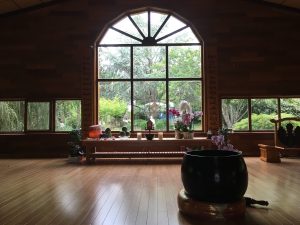
The altar in the meditation hall of Upper Hamlet, Plum Village.
With nature’s beauty all around and with the tranquil environment created by the community here, it’s hard not to find myself experiencing mindful moments and spontaneously enjoying the present. And yet, I am often restless here as well. The pace of everything here is calm and unhurried. Without realizing it, I often find that I’m walking faster than those around me. There’s also a bell they ring every so often as a reminder to return to the present. When they ring it, everyone goes silent and follows their breath for a few moments before returning to whatever they were doing. I’m often one of the last to notice the bell.
There are several meditation sessions of different varieties each day with the first starting before dawn at 6:00am. Despite years of meditation practice and experience with sessions as long as an hour, I’m often distracted and impatient. During breaks I tend to search for ways to occupy myself so I’ve been playing a lot of chess and Go with the other retreatants. As a practitioner of mindfulness, I know that occasionally getting distracted or impatient is natural and that I shouldn’t give myself a hard time about it. I’m also told by the veterans here that by the end of the week I’ll have adapted, but I have a hard time imagining myself slowing down so much at the moment.
I guess I’ve never had this much time every day dedicated to mindfulness before. We practice being mindful in almost everything we do, even walking, eating, and working. So much time with my thoughts makes it hard to hide from any difficult emotions I might be avoiding.
I’m making friends here and meeting interesting people, though it sometimes feels like my naturally extroverted nature is at odds with the intentions of the retreat. Today at lunch I made the mistake of carrying on a conversation while waiting in line for food. The dining hall is a “Noble Silence” area, which means we are meant to practice being present, silencing both our mouths and our minds.
I clearly have a lot to learn about mindfulness and I’m excited to learn over the course of the retreat! I wonder a little if one week is enough time to internalize what I learn here and if I’ll really be able to take mindfulness with me into the distracted and hurried world outside. I suppose only time will tell.
Day 2 – Sunday, July 8, 2018
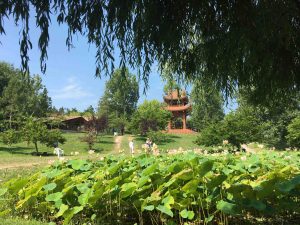
A view of the lotus pond and bell tower in Lower Hamlet, Plum Village.
I’m quite pensive today. I suppose my overactive mind doesn’t take many breaks, even on a mindfulness retreat. After morning meditation and breakfast we walked down to the Lower Hamlet, which is, I think, typically where the single women stay. In some ways the Lower Hamlet is even nicer than the Upper Hamlet, where the men stay: there’s a large lotus pond in the center, and a peaceful grove of trees for walking meditation. We visited Lower Hamlet for a “Dharma Talk”, which is perhaps the Plum Village version of a lecture or a sermon.
I’ve been drawing a lot of parallels between my experience here and my sparse childhood experiences at Christian and later Universal Unitarian churches. The community for practice here, the “sangha”, is much like the parish of a Christian church. The monks even seem to have a few songs which they lead us in before certain activities. Today, before the talk there was a performance of sorts with many of the monks and nuns chanting. I must admit that the comparison between Plum Village and a religious retreat makes me uncomfortable. I understand the powerful principles underlying the creation of a community of spiritual practitioners, and the way things are organized here makes sense, but I’m finding that I’m a bit resistant to some of the teachings here because of the format. I know that there is wisdom here, as there is in many of the world’s religions and spiritual practices, but I think the church-like format and strong devotion of many of the other retreatants has me on high alert for dogma. As is often my practice, I find myself questioning and examining everything, and I wonder if my habit of doing thi is diminishing my experience. There’s a common aphorism in Zen that goes something like “One cannot learn new things when the cup is already full.”
I wonder if my cup is too full. People often rave about their experience in Plum Village, and many of the retreatants are veterans who have been returning for years. While I certainly see the value, I’m not sure that I’m a raving fan yet, and I’m not sure what it would take for me to become one.
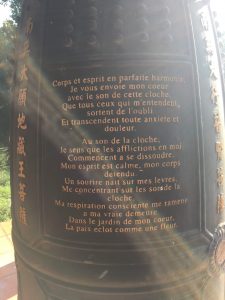
The poem inscribed on the large bell in Lower Hamlet, Plum Village.
On some level I think my personal philosophy is grappling with Buddhist precepts and finding a few places where there may be conflicts. In particular, Buddhism emphasizes slowing everything down and even just being OK with doing nothing for no reason. It also emphasizes the dual ideas of managing suffering while cultivating joy. While I’d agree that in our daily lives most of us are too hurried to mindfully enjoy the present, and that most of us struggle with the idea of having nothing to do and no stimulation, I believe in a balance in all things and have been wondering if the Buddhist work ethic as I’ve experienced and understood it so far is really the middle path. I also believe that some amount of stress and suffering is actually good and necessary, and that sometimes we should even seek it out (learning to face one’s fears, for example, usually has large personal benefit but could be argued to be a form of suffering). I have yet to see this conundrum fully addressed by Buddhism, though I’ve seen hints in the way my teacher talks about sitting for meditation (there is often pain, but one accepts and overcomes it and, in so doing, the pain bothers one less as they become practiced).
Anyway, today’s talk was about following the breath, finding joy/happiness in the mindfulness of doing so, and ultimately applying mindfulness to transform neutral and unpleasant experiences into pleasant ones. The core idea seemed to be that by applying awareness (rather than thought or avoidance) to these emotional states, we can take pleasure in the experience of acknowledging that we are bored (neutral) or sad (unpleasant). I think there’s truth in this though I sometimes feel skeptical of the somewhat mystic terminology of Buddhism. I suppose I’ll just have to try for myself sometime.
Day 3 – Monday, July 9, 2018

Fields of sunflowers litter the beautiful Bordeaux countryside.
I gave up my watch today. I was talking to one of the other retreatants and realized that my watch and sense of time were pulling me out of the present. Though I’m still somewhat skeptical of some of the Buddhist teachings, I’ve decided to do my best to embrace the spirit of the retreat. To this end, I’ve also given up chess and Go for the remainder of my time here as I was finding that my attachment to the games was distracting me–even in moments when I didn’t have down time I would look forward to the next time I’d get to play. I think perhaps I will make exceptions to this rule–the goal is to be present and mindful with myself, my surroundings, and my companions here. There are mindful interactions I can have with others over chess, but for now I will prefer conversation.
In the absence of other distractions, I mostly fill my time with walks and with talking to people. Many of the people here have followed similar paths or struggled with similar things and found refuge in mindfulness and Buddhism, so the conversations have been interesting and fruitful.
Today we visited New Hamlet via bus for another Dharma Talk. I decided to listen to the talk in French, and I’ll admit I was a bit tired–we sleep around 10pm and wake-up around 5:15am–so I only got the gist of the talk. Mostly it seemed to be about how Buddhists conceptualize the mind and human psychology. The analogy they’re fond of using is that the mind is like a garden with many seeds we can water to bring things into our consciousness. Focusing on the negative seeds causes negative thoughts and behaviors to grow, while focusing on the positive seeds does the opposite. Mindfulness, then, is tending a garden, and being judicious about which seeds to water and with what nourishment.
In the afternoon we learned about the 5 Mindfulness Trainings, which are a sort of code practitioners can commit themselves to. It includes things like mindful consumption and mindful interaction, and it implies that one make a commitment to vegetarianism and giving up substances like alcohol. Hearing these trainings felt a little like receiving the 10 commandments, and I could feel that comparison making me tense and less receptive. Though the trainings sounded rigid, the monks expressed two sentiments I really appreciated: 1) this is an ideal to work towards, and it’s not meant to be dogma–interpret them how you will while maintaining the spirit of mindfulness and 2) take what’s helpful to you and leave the rest with us. These sentiments really helped me to feel less like I’m on a religious retreat and being pressured to convert. We’re given the option to accept the trainings in a formal ceremony before we leave. I haven’t decided yet if I will.
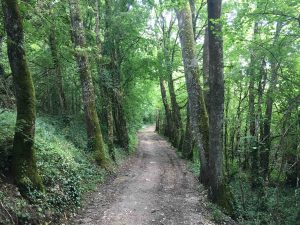
The walking meditation path through the forest in Upper Hamlet, Plum Village.
I got into a bit of a debate with one of the other retreatants today which I felt illustrated one of my hesitations about the community here. Basically, I’ve observed that a lot of people here put a huge emphasis on “going with the flow.” This makes sense, as a lot of these people are recovering control freaks who were previously on high-stress career paths. They seem to have found in Buddhism an invitation to embrace the opposite extreme and now attempt to control nothing. The same pattern is observable about thought and intellectualizing–many of these people have experience stress, anxiety, or depression from being too much in their heads. They seem to now profess a total rejection of intellectualization and rational thought, preferring instead to feel everything out. My concern, and the kernel of the debate, is that these reactions are too strong and may lead one to a less-than-optimal path down the other extreme. In most things in life, I have found that balance is ideal because there are advantages and disadvantages to nearly every way of thinking and every way of being. In the cases here, following the other extreme does involve much less stress, which makes it potentially falsely attractive, but I think it may also lead to a state of under control, where one does not exert influence on things in life they actually can and should control (it’s knowing which is which that’s the real challenge, in my opinion). I can’t claim to know what the right balance is, but I have an intuition that the opposite extreme is not it.
On my way to write this entry, I was invited by one of the monks to join him for some late evening tea. Though it was getting late and I was eager to write down my thoughts for the day, I felt it would be wrong to decline. We drank tea by a lake, and he graciously offered to help untangle some of my internal knots. I shared with him some of the difficult emotions I’ve experienced in separating with my Vietnamese ex-girlfriend. He is, himself, Vietnamese, so I felt a little bit of a language barrier, but was appreciative of a compassionate ear. His advice itself confused me somewhat, however. He seemed to make a lot of assumptions about my ex- since she was Vietnamese, and he seemed to make a lot of assumptions about what and how I felt about her and about the depth and nature of our relationship. It struck me at points as a bit strangely ironic to be receiving advice on such matters from a man who became a monk at 17 and who likely had little actual experience in such matters, but I enjoyed the tea and the company and did my best to keep an open mind. This monk has suggested I stay in Plum Village for another week or two, and I’ve learned from him that it may be possible to borrow a tent. There are a few other hurdles to staying longer, but I’m considering it. He claims that I should take more time to heal, not just from my ex-, but also from suffering I have from my parents. He thinks that in the outside world I’ll distract myself and run away from my suffering rather than sit with and understand it. I’m not sure, but he may be right–I certainly think I felt better about the break-up leading up to Plum Village because I was so busy I didn’t really have bandwidth to process my emotions.
I’m not sure what I’ll find if I stay another week, but regardless of my continued skepticism, I do know that I feel more deeply calm, relaxed, and at peace here than I have for a very long time.
Day 4 – Tuesday, July 10, 2018
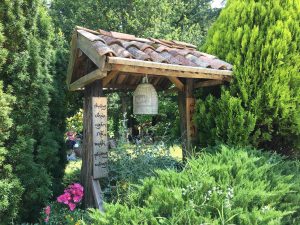
The smaller activity bell in Lower Hamlet, Plum Village.
I have decided to spend another week here if I can make it work logistically. All day I’ve been playing with the question of whether or not to stay. For most people, I think Plum Village represents a place of refuge where they can escape from the stress in their daily lives and connect with the mind space to recognize and really deal with their deeper internal fears and issues (or, as Buddhists would say, their suffering). I’ve been struggling a bit to understand why my experience so far hasn’t matched up with others’, but now I think I see that it may be because I have made dealing with fears and issues a major focal point of my life.
The argument for staying in Plum Village is usually that doing so will help one to better understand themselves and their suffering so they can deal with them here rather than run away from them through distractions and consumption in the outside world. For me, though, I’ve been wondering if Plum Village is actually my way of running away from my problems: I deal with my fears and my problems every day, though I’m admittedly not always as mindful as I could be about how I go about it. Here in Plum Village, I am safe and can give myself a pass to not deal with the fears involved in walking my own path or the suffering involved in my close relationships. Though I recognize that staying here has value for most people living more traditional lifestyles, I have been trying to decide if I would get more value here or out there. Also, particularly because of some of my resistance, I’ve wondered if I should go.
What changed my mind today was a moving experience at the end of a talk today about “Beginning Anew.” “Beginning Anew” is a practice they have here for renewing, repairing, and strengthening relationships. It involves recognizing that relationships are dynamic, and cannot be expected to remain the same over time. It also involves recognizing that every fulfilling relationship has good moments (flowers) and challenges (compost), and that both are equally important in maintaining a strong relationship. Their process here has four parts: 1) flower watering, in which one recognizes, affirms, and appreciates what is beautiful and special about the other person, 2) expressing regret, in which one takes ownership of the things they wish they did better so the other person might suffer less, 3) expressing suffering, in which one describes how they suffer as a result of the other person’s actions, without blaming or any vindictive or harmful intent in order to simply help the other person understand you better and 4) asking for support, in which one asks the other for specific help to reduce one’s suffering.
All of this makes great theory, but what really brought it home was the monk inviting a couple to volunteer to actually go through the steps in front of all of us. At first, nobody volunteered. After many minutes, there was a woman who seemed interested, but her husband was visibly reluctant. She eventually got him on stage with the promise that perhaps they would just go through the affirmations.
Her affirmations were so heartfelt and tender that they brought her husband to tears. For some reason, I also couldn’t help but cry watching this–perhaps because the expression of love was so beautiful, and perhaps because it reminded me of something I had recently hoped for and lost in my ex-. She didn’t stop there, though. She ended up going through the entire process and when she was finished her husband, reminded of her love for him and of his love for her, leaned over and kissed her. Unexpectedly, he then got very into it and similarly walked through the process. We could actually feel and see their love for each other, and feel and see that their relationship had tangibly been healed by the exercise. It was a very moving and very human experience, and watching it feels as if it has healed something in me as well.
In the wake of that experience, I’ve come to the insight that though I will not necessarily agree with every teaching here, this is, indeed, a very special and very healing place. I don’t entirely understand how or why yet, but perhaps I don’t need to. There is much that I can learn and practice here, if I allow myself to, and for all I know I may never get another chance to come back. Tomorrow I will ask at the registration office if I can stay another week and I will take a friend up on his offer to borrow his unused tent.
Day 5 – Wednesday, July 11, 2018
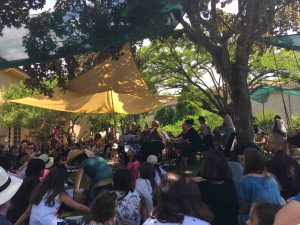
The monks and nuns put on a small concert for us near Song Ha Temple, Upper Hamlet, Plum Village.
Yesterday was lazy day which meant that there were next to no official activities and I had time to sleep in. Waking up for 6am morning meditation after such a day was a bit brutal. It was a fairly uneventful day, but I want to write about a few philosophical insights I’ve had. A few of these came up during a Q&A session with the monks and nuns during which I tried to phrase a few questions I had been thinking about only to find that I already had the answers, or at least that I had made progress since the last time I thought about them.
The first question is whether or not happiness equates to meaning in life. I ask this question because it’s almost cliché to look beneath surface-level desires (e.g. money, fame, power, etc.) and state that what people who want these things really want is to be happy and that they pursue these things because they believe having these things will make them happy. Buddhism teaches that the conditions for happiness are always present, and that a form of happiness is readily accessible through mindfulness. Empirically and experientially, this is true for me: being mindful helps to generate a wondrous sense of appreciation, gratitude, and connectedness, creating a joy that could be most likened to the joy children experience as they discover the incredible nature of even simple things in the world for the first time.
Happiness–become and staying happy–receives a lot of attention in the teachings at Plum Village, but I am increasingly convinced that happiness is, itself, another red herring in understanding what truly motivates and inspires people. I’m beginning to think that what we truly seek from life is not happiness, but meaning. Though they are related, they are not the same thing. I think that the existence of meaning generates happiness, and that being happy is meaningful and makes it easier for us to find meaning in our situations and surroundings. However, meaning does not necessarily require the presence of happiness: we often find meaning when we suffer, and we sometimes find meaning in relationships that at times give us more frustration than joy (e.g. family). If what we really seek is meaning and meaning does not equate to happiness, then the idea that our goal in life is to pursue happiness is an oversimplification. What we should pursue instead is meaning, which will commonly be found on the road to happiness, but which can be found through other paths as well (e.g. converting to a religion and accepting a dogmatic definition of meaning; suffering but suffering well also often leads to meaning).
The second insight is related: it’s that our goal in life cannot and should not be to eliminate suffering. I often hear people who have had some exposure to Eastern philosophies express an aspiration to “be liberated,” as if liberation implies an end to all of their pain and suffering for all of time. I’m learning, however, that happiness cannot exist without suffering anymore than light can exist without shadow. Furthermore, the balance and interplay of suffering and happiness is an important source of meaning. I think it’s possible, therefore, that the concept of enlightenment has less to do with not suffering and more to do with learning the perspectives and practices to suffer well–finding meaning in our suffering and therefore naturally reducing the suffering.
These ideas need more exploration and refinement, but if I’m right than I think my approach to life does change slightly to optimize for meaning in whatever forms I can find or create it rather than just optimizing for happiness. I wonder also what implications these ideas have for how we should structure our societies and define our societal goals as well: if the aim isn’t to eliminate suffering, is it still to lessen it as much as we can? Is there an amount of suffering that is actually good to have present? Should we even create suffering to achieve that if necessary?
In other news, I’ve confirmed that I can stay here another week. There’s a dorm bed available in Sơn Ha for 350€/week and, though pricey, I think I’m going to take it. I may see if I can use my tech skills to volunteer and receive a free or reduced rate in exchange.
I also had a few really interesting conversations today: one about politics and societal values (including a discussion of direct democracy, its merits and its flaws), and one about “the 7 chakras” and theories for personal philosophy and the progression of consciousness. A more in-depth recounting of those conversations will have to wait until it’s not super late at night before a 6am meditation, but suffice to say I have found very interesting topics on which to connect very deeply with some of the people here. I can’t help but feel that I’m making some good friends for life here, and this also motivates me to stay longer.
As a last note: my Dharma sharing family facilitator, a very wise, joyous, and entertaining Thay Phap Dung, says that he sees something different in me since I’ve been here and that he’s glad I’m staying longer. Something in my eyes, he says. I think I feel it, too: here I am very deeply at peace and experience a very deep joy which I think reflects in my face. The challenge when I leave will be taking that with me and maintaining it in the world outside.
Day 6 – Thursday, July 12, 2018
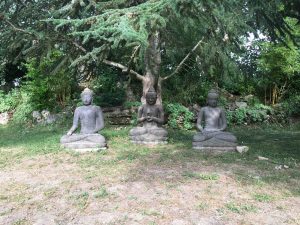
A collection of Buddha statues in Lower Hamlet, Plum Village.
Today was the last day of the first week of the retreat. The day started with kind of a weird ritualistic ceremony. Many people here opted to receive the transmission of the 5 Mindfulness Trainings (or, at least some of the 5). Rather than sitting meditation, we had the ceremony at 6:00am, which involved some chanting, reading the mindfulness trainings, bowing to the altar in the meditation hall, and ultimately receiving a certificate including the entire text of the 5 Mindfulness Trainings (to be reviewed and contemplated on a regular basis).
I have not elected to receive the 5 Mindfulness Trainings myself, though doing so is more a commitment to one’s self than anything. I’m still deciding how much of the text I agree with. Since I’m staying another week, I figure I have more time to contemplate the decision.
I continue to struggle a bit with the more ritualistic side of the tradition here. I suppose in part, this is why I stay so intellectually on guard: the difference between a community and a cult can be as small as the absence of independent rational thought and the presence of cyanide in the Koolaid… I am, however, learning not to let this get too much in the way of my absorbing useful insights from the rest of my surroundings.
I had some harder moments today. In stark contrast to the feelings of joy and peace I’ve had throughout the week, today I often felt tense and was visited by heavier feelings of stress, anxiety, or fear. It was nothing I haven’t learned to be familiar with, but it was a bit surprising nonetheless. I’d attribute these feelings to two sources. First, I had to turn on my phone and refill my SIM card. That was, itself, rather frustrating, and reconnecting to the outside world had a stronger effect on my ability to stay present and mindful than I expected. Suddenly, with messages to send, replies to receive, and potentially work to do, my mind became very occupied and I caught myself often thinking ahead to something I might need to do later. I think this all contributed to a loose sense of stress, heightened by the fact that it feels like such a long time since I last experienced stress.
At first, the idea of having to stay in contact with the outside world or working while here bummed me out, but I’ve come to realize that it’s a wonderful opportunity to begin to slowly integrate my mindfulness practice into my normal life while still keeping a foot in the safety and energy of Plum Village. My first week here was quite relaxing and I learned a lot about the joy of slowing life down. These conditions–no phone, no watch, no deadlines–however, were not terribly similar to my actual life. To really learn to be mindful outside of Plum Village, I will need to learn to change my relationship with technology and with work. I’m quite excited now for the challenge.
The second source of tension was a brief feeling of disconnectedness from some of my friends here. I had a pretty interesting philosophical conversation with a friend, but left feeling like I had perhaps not been mindful and may have pushed too hard. I really enjoy talking about some of these questions, but I think I have strong opinions and an intensity in asking the questions that can sometimes wear people out.
The topic of the conversation also left me feeling a bit down. As I alluded to yesterday, it seems as if happiness and meaning don’t exist without suffering. Yet, the paradox is that we often derive meaning from lessening the suffering of others. In an ideal world would we not, therefore, work to eliminate all the suffering we could? Is there any meaning in a world without suffering? If not… should we involve ourselves in the lessening of suffering at all or should we leave it be? Somehow it doesn’t feel right for there not to be any meaning to anything, nor does it feel right to not aim to spread joy/happiness while lessening suffering, so the implications of this paradox deflated me a bit. I’m still playing with it, but I think the way out of the paradox involves recognizing that even if our intent is to lessen suffering as much as possible, it’s likely humanly impossible to completely eliminate suffering–that would involve removing emotions, something that feels very integral to what it even means to be human. There seem to be two forms of suffering: the original pain that kicks up emotions, and the additional pain we kick up by getting overly involved in these emotions in unskillful ways. With practice, we can learn to transform the second type of pain into something positive (e.g. when we feel stressed we can either be stressed that we’re stressed or we can develop a healthy relationship with stress and learn that some amount of stress helps us to grow and evolve).
I think it’s unlikely that we can ever eliminate the first type of suffering without removing our emotions–and that’s OK because joy and happiness can often be found in the absence of that pain, but can also be found in the practice of making that pain an ally when it is present. So perhaps our goal as a race and an important way in which we find meaning is in helping others learn to suffer well. If we did this perfectly it would not mean the end of all pain, but it would mean the transformation of all negative affectations of suffering. Such a world would, indeed, be beautiful.
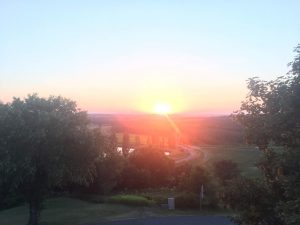
An incredible countryside sunset seen from a church on a hill near Upper Hamlet, Plum Village.
I had two really beautiful high points today despite the introduction of stress. The first was during dinner when I looked around at the faces of everyone in my Dharma sharing family and realized that I really, honestly, wanted to help them all experience joy and suffer less and that I knew they all wanted the same for me. This is an important part of what they refer to as “True Love” here (only one part of what I personally consider important in romantic love). The realization that I feel a sense of love for all these people and from all these people was very moving and powerful. I imagine for some it’s also incredibly healing–it may be the first time in their lives they’ve experienced such a love.
The second was after dinner during a special tea meditation we had to close out the week. My small family hiked a ways to a church on a hill outside of the monastery. There we shared a delicious oolong tea, some inspired music from the talented musicians in our family, each other’s presence, and the beautiful orange light of twilight as the sun sinks over the hills and valleys of rural France. All of it came together to create what felt like a beautifully perfect moment full of joy and full of presence. I kid you not, it was nearly enough to move me to tears. It’s hard for me to describe why, but there’s so much meaning to a joyful moment like that shared with people I care about. I believe it may even have been one of the most beautiful moments in my life so far.
Day 7 – Friday, July 13, 2018
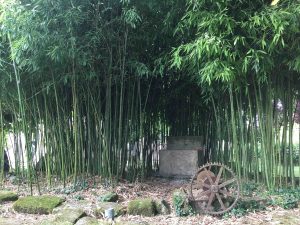
A small bamboo forest in Lower Hamlet, Plum Village.
I’ll try to keep this one short, as I’m trading sleep for time to write these sometimes and I did not sleep long last night.
It’s arrival/departure day for the second week of the retreat so there wasn’t much scheduled programming for the morning, but I chose to rise at 5:45am and meditate on my own despite having gone to bed past 1:00am.
Today was a difficult day, perhaps for a number of reasons. Not getting enough sleep didn’t help, but I also said goodbye to a number of departing friends today. I’m not terribly good at goodbyes. It’s been interesting, though in some ways alarming, watching the energy of Plum Village as one wave of retreatants leaves and another arrives. When I got here a week ago (feels like a lifetime ago) someone mentioned the hurried/excited/anticipatory energy of new arrivals and how it seems to change over the course of the week. Now that I’m on the other side I understand better. I think I’ve found this renewed sense of rush from outside a bit stressing and my lack of good sleep didn’t afford me the fortitude to normalize. It’s incredible how big a difference a good night’s rest can make.
I have found, however, that I seem to need less sleep here in general. On average I think I sleep 7 hours or less, yet I’ve often felt more energized here than I have in a long time outside.
I’ve had to stay in touch with the outside a bit as well today, and I found I had unmindful moments where I’d pull out my phone for no terribly good reason. I’m starting to get in the habit of leaving it in Airplane mode until I really need it, and am learning to check it a few times a day without feeling anxious to check it. Nevertheless, I’m sure this also had something to do with my darker moods today.
For my second week in Plum Village, I debated switching myself to a French Dharma sharing family so that I’d be forced to speak and listen in French. At the last moment, however, I decided to return to my original English Dharma sharing family because there are many younger retreatants there, I’ve gotten to know some of them quite well, and I think I’ll get more out of the group activities in English. I’m trying to make a commitment to engage more of the many French retreatants in French–I already get to speak more French here than I did in Bordeaux–and not give up and switch to English when I have trouble. I actually had a nice conversation with a French web developer for about 45 minutes before writing this :).
I honestly don’t know exactly what to expect from myself during this second week here. Will it be more of the same, or will I experience something totally different? I’m trying not to get too attached to an idea of it. I do, however, want to set the intention of using this time to learn to apply mindfulness to technology and my work and potentially to engage more with the suffering I know I still carry from my parents. I can’t expect too much, but it would mean a lot to me to be able to meaningfully mend my familial relationships. Up until now, I’ve often found I can’t muster enough compassion to view my parents’ transgressions in a truly forgiving and loving light, but perhaps I can make a breakthrough with support from the nurturing emotional environment here.
Day 8 – Saturday, July 14, 2018
I cried twice today. Once while I sat by the large bell and again during Dharma sharing when I recounted my personal insights.
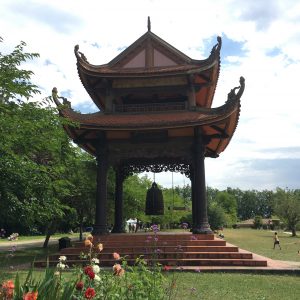
The bell tower where I spent most of my down time at the Upper Hamlet, Plum Village.
I discovered today that I have been running away from much of my suffering, and I’m really glad I’m staying an extra week. This morning I woke up after a dream about a typical disagreement with my mother, which left me feeling tense all morning. I missed morning meditation because I woke up late, but I made it to the Upper Hamlet for the rest of my morning routine. Over tea, I had a long conversation with Hamish where he shared that Thay Phap Dung had given him an assignment to write a letter of gratitude to his parents about all of the great attributes they have that he has inherited from them. Of course, we ended up talking a lot about our parents and difficulties with them. Not long after our conversation I was sitting alone by the large bell with some tea and my Kindle as I often do. I had just resumed reading Siddhartha by Herman Hesse when I realized my pain was starting to surface. I closed my eyes and mindfully followed my breath and just let it come, and before I knew it I was crying. In these tearful moments, I had a few insights: that while I’ve been facing my fears and learning to deal with other forms of suffering, I’ve been running away from the suffering I have inherited from my parents and the suffering their suffering has caused me; that they could never have taught me to deal with my suffering since they have never known how to deal with their own suffering; that I’ve tried and failed many times to mend my relationship with my parents, and for a long time have sort of given up and decided to just keep my distance instead; that I’m incredibly grateful that my ex- helped me to gravitate toward Buddhism and Thich Nhat Hanh, grateful that she taught me to recognize my parents’ suffering with compassion, grateful that her last great gift to me was the knowledge that I have the capacity to forgive even when others have made me suffer greatly, and grateful for the knowledge that I have the capacity to transform my suffering and the suffering of others; that the way our relationship ended taught me about the same love, compassion, and forgiveness I must now learn to apply to my parents; that through my compassion I still love my ex very much, though I have learned that love and attachment aren’t the same thing so I believe I can continue to feel this way for her without desiring a romantic relationship with her or avoiding one with someone else someday; and that I must learn to listen with more compassion and master the art of suffering well.
I shared all of this during Dharma sharing. It was intense and cathartic. I wonder if it was a bit much since some people were attending their very first sharing session ever, but oh well.
I’m still wearing two hair ties my ex- had put around my wrist for me to remember her by. I haven’t felt completely ready to take them off yet, though sometimes noticing them has triggered a feeling of missing her or of residual anger about how things played out. Now I think that I’ll continue to wear them and instead use them as a frequent reminder of my capacity to love compassionately and to forgive, and of my gratitude in discovering that capacity.
Tomorrow I’ll start trying to bring my parents into my meditation, and perhaps do some writing about and for them. I’m nervous about facing my suffering, but I think I have the tools I need this time.

The Happy Farm, where volunteers help to grow food to support Plum Village.
On a different note, I visited the Happy Farm, where they grow many of their own vegetables, today. I helped them harvest beans and learned that farming is a great method for overcoming my fear of critters–they hide pretty much everywhere on the farm. While there I had some interesting conversations which once again got me thinking about the relationship between happiness and meaning. I’ve had a couple new key insights to explore on this topic: 1) happiness is personal and has to do with lessening suffering and cultivating joy in one’s self while meaning is usually realized in relation to others and has to do with lessening suffering and cultivating joy in others–the more compassion we feel for someone else, the more potential for meaning in the relationship; 2) most people seek a sense of both meaning and happiness ; we tend to feel something is missing without one or the other (this was the missing link before when I wrote about authenticity and integrity); 3) happiness is, in many ways, a prerequisite for most meaning, as we can’t help people feel joy if we don’t have it ourselves, and we can’t as effectively lessen suffering in others if our own burden is too heavy; 4) meaning often generates some happiness, but happiness by this definition cannot be meaningful on its own (e.g. I’m happy, but I long for someone to share it with); 5) authenticity perhaps maximizes both happiness and meaning; 6) there is, perhaps, a separate concept from happiness and meaning which is purpose; purpose and meaning may fulfill overlapping roles, but I need to think about this more.
Anyway, that’s enough musing for now–I need to sleep.
Day 9 – Sunday, July 15, 2018
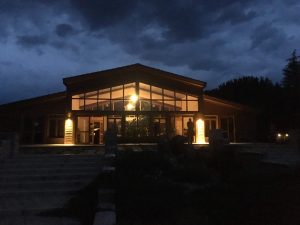
An early morning shot of the meditation hall in Upper Hamlet, Plum Village.
The weather is changing a bit here. Occasionally, dark clouds crowd the sky and threaten to litter the hamlet with rain, though it has not truly rained during the day yet.
We spent the day in Lower Hamlet. I got into a small argument with someone new in my Dharma sharing family. A few of us were talking and I was amused to hear the newcomers expressing the same discomfort as I did with certain aspects of Plum Village (e.g. the singing). One even compared it to a cult-like experience as I did a number of days ago.
Someone mentioned that there were a few things they completely disagreed with during today’s Dharma Talk. When pressed, he said that the meaning he got from some of the talk was “Just breath and your problems will go away.” While I could see how he might interpret things that way, I jumped in very quickly and very forcefully to correct him because I knew that his statement was a gross oversimplification of the philosophy here. They don’t teach that breathing will make our problems disappear–they believe mindfulness and the breath can be used as invaluable tools to become comfortable being with and experiencing our more uncomfortable emotions rather than running from them or finding ways to distract ourselves from them. They teach that in learning to do this well we learn to deal with our pain rather than hide from it and that this helps us solve our problems and become happier.
My heart was in a good place–I didn’t want him to reject his experience here or the wisdom offered here over a disagreement with an incorrect interpretation of the teachings. However, I could feel that I had made him feel judged, lectured to, and unwelcome. I wish I had listened compassionately instead and perhaps have picked a more tactful way of making my point. I have a lot to learn about compassionate listening–my intellectual instinct is to correct and advise when often someone just needs to feel heard. Learning to do this well would have helped me in my relationship with my ex and will certainly help me make peace with my parents. I ultimately apologized to the person I corrected–even though I know I was factually correct, I also know that I was emotionally wrong to do what I did.
Today I’ve felt better than the last few days. I’m still very aware of my suffering near the surface, but for the most part I’m experiencing joy and suffering simultaneously and it’s a strangely beautiful feeling.
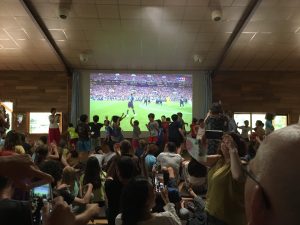
The community celebrates in the large meditation hall as France wins the World Cup.
It was also the World Cup final today, and we turned the large meditation hall into a screening area. Apparently Thay didn’t used to allow this but since many of the monks and nuns would watch secretly he decided to just bring everyone together to watch it. We were advised to notice how we and the people around us were feeling, and enjoy the rare outbursts of excitement the monks and nuns would show whenever a goal was scored. I don’t normally watch football, but a friend explained some more of the strategy to me and it ended up being an exciting match. I feel fortunate to have watched France play in and win the World Cup while at Plum Village in France. What are the odds??
No progress today with respect to my parents, but I’ve loosely committed myself to spending my lazy day in relative solitude just approaching the suffering and trying to work through how I feel. No reading or other distractions (even people!!) allowed unless someone invites me to share some time with them.
Day 10 – Monday, July 16, 2018
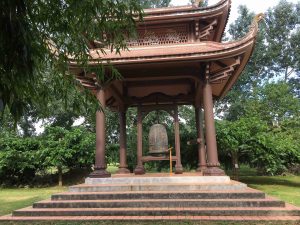
A view of the bell tower in New Hamlet, Plum Village.
This morning I woke up to distant lightning. I nearly decided to go back to sleep rather than hike 10 minutes to the meditation hall in the rain, but when I went outside it was clear the storm was still a ways off. Almost immediately after I sat down in the meditation hall, however, it started totally pouring. It was actually quite a magical experience sitting and meditating to the rhythm of the drumming rain. I always hated the rain growing up, but I’m trying to learn to appreciate it–after all, they say life is about learning to dance in the rain.
After breakfast I finished reading Siddhartha by Herman Hesse. It was a pretty profound read–I read it once in high school, but I don’t think I got nearly as much out of it. Finishing the book has me contemplating a lot about the tension between acceptance and action. I think the closest thing Siddhartha comes to attempting to explain the insight of enlightenment is the realization that time is a human construct, that everything that was will always be and everything that will be always was, and that the world is perfect in every moment despite present suffering. In this timeless sense, we become one with pretty much everything–what comprises my body may have existed in many forms: earth, animals, insects, elements, etc. and so I owe gratitude and reverence to all things. Everything on Earth is connected in this way by our complex ecosystem and the cycle of life.
What I’m struggling with, though, is that if truly loving the world and fully realizing this insight means accepting the perfection of its imperfection and recognizing my own and all other suffering as a beautiful part of the broader whole, then what motivation is left to us to change or improve the world or ourselves? In this context, if imperfection and suffering are parts of the genius of life, what does it even mean to improve the world? Thus far, I’m not totally sure what Buddhism has to say to this contradiction, and I keep coming back to it in one form or another. I hope to learn more about the Buddhist perspective here before I leave.
We went to New Hamlet today for another Dharma Talk. I’m still finding that this format isn’t for me–I never have been a fan of lectures. I’m realizing I gain more wisdom and insight reading about these concepts than by having a monk try to explain them. Every teacher has their own style, of course, but thus far I’ve felt that the way they’ve explained topics is logically brittle, trying to fall back on hearsay science at some points, and failing to skillfully back up their claims with good examples. I maintain that this is a failing of the teachers, not of the teachings, however. I’m grateful that these talks are not my first introduction to Buddhism–if they had been I might have been turned off to it. I wonder if my experience would be different if Thich Nhat Hanh still gave these talks himself–he does a reasonably good job explaining in his many books.
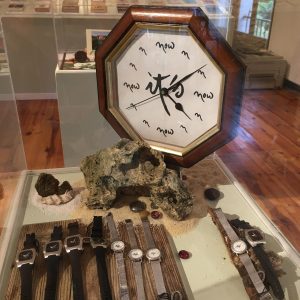
It’s now. A clock and watches from an exhibit about Thich Nhat Hanh in New Hamlet, Plum Village.
After the Dharma Talk, Thay Phap Dung offered to share an orange with me. I had been meaning to have a conversation with him for a few days and was very grateful for the opportunity to hang out with him. We talked mostly about our fathers and he offered me some guidance in navigating my emotions toward my parents. Much of what he said was both relatable and insightful for me, but one thing that really stuck with me was the concept of the “inner” parent.
Our parents and our ancestors are a part of who we are, both through their genes, and through the behaviors and suffering they have purposefully or inadvertently passed on to their children and their children’s children. In this sense, my father is within me as well. When I feel animosity toward my father I can’t help but also feel animosity towards parts of myself. Thus, to hate my parents is to hate myself and vice-versa. To love myself is also, in a way, to love my parents, and vice-versa. I can never truly love myself until I also learn to love my parents, and it’s difficult to truly love someone else without loving myself first. I’m learning to start small with my appreciation of my parents’ traits, and that I need to accept their love in whatever forms they can give it, even those forms are imperfect or cause me suffering sometimes. I’m also realizing that my taking care of my entrepreneurial fears (very similar to my father’s) and learning to deal with my wrong perceptions and difficult emotions (very similar to my mother’s) is not, in fact, a rejection of them or a trial to prove that I am better than them, but rather in a way is a very deep form of love: learning to transform the suffering passed to me by my parents so that I can help them both to heal and to suffer less. In this way all of the great trials of my life right now become connected…
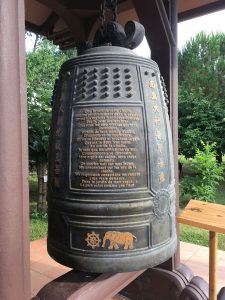
The poem inscribed on the large bell in New Hamlet, Plum Village.
After our chat, Thay Phap Dung and I joined walking meditation and he asked me if I minded holding hands. I found that I didn’t, that I enjoyed the connection and his presence, that I could feel his love and compassion through his hand. It was a joyful walk, and we were soon joined by one of his many child friends. Thay Phap Dung never ceases to amaze me. He is at once so wise and so childlike, taking off running through the fields to play with a child. He is obviously wordly (and is thus more credible) but so joyful and so free. In his work as a monk I can see that he has touched many lives, including my own. I admire and respect him greatly.
Today after dinner was lazy evening, meaning there were no activities scheduled. The atmosphere of the hamlet changed greatly with many people singing and drumming and being merry in the dining hall. Some people even commented that it felt more like a music festival than Plum Village. For my part, I was challenged to a game of chess. I was also asked by a little girl and her mother if I might teach her how to play. I found that I enjoyed teaching her very much–she was clever and grasped the concepts quickly. I don’t want to stroke my own ego, but I also realized just how consciously competent I am at teaching. I’m able to connect to students on an emotional level, keep them entertained and engaged while presenting new material, can construct good exercises to test their understanding, and have the patience to allow them to think on their own and make mistakes. I think I also have a deep empathy for students and am able to explain things in a clear and relatable way at the right pace while also having good insight into why a student misunderstood something when they get stuck. I noticed the other adults lacked many of these traits–were either impatient or unclear and unengaging. I wonder, as I have once wondered before, if teaching may be one of my gifts. A young French boy has also asked me to teach him and I intend to teach him in French tomorrow.
Day 11 – Tuesday, July 17, 2018
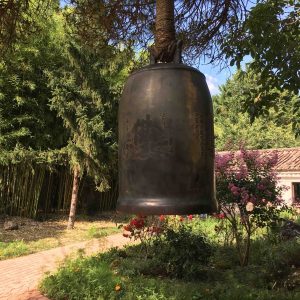
The activity bell in the Upper Hamlet, Plum Village.
Another lazy day. I woke up too late to make it to breakfast. My plan originally was to read through No Mud, No Lotus, Anger, and Reconciliation by Thich Nhat Hanh and then do some writing about my parents, but instead I kept finding myself in conversations with people. It was good, though, one conversation was with a Vietnamese monk who approached me while I was reading near the bell tower, another was with an aspirant in my Dharma sharing family who I ran into on my way out to go running, and two others were with friends who looked like they were struggling so I wanted to lend my ear.
The chat with the Vietnamese monk was interesting. It’s often hard to understand what the Vietnamese monks are saying because their accents are strong and their English isn’t perfect. At first, I thought he was trying to give me some unsolicited advice about balance and types of pleasure, but I slowly realized that he and I were having a philosophical dialog. He brought up the point that perhaps some ego is good or even necessary for many things which has me examining whether or not my strong and total rejection of ego in recent years is an overreaction–perhaps a little bit of ego to give us drive isn’t a bad thing? This isn’t exactly a Buddhist idea, however, so I was surprised to hear it suggested by a monk. We also talked about human “illusions” like the beliefs we can hold about society and purpose. He argued that illusion is sometimes necessary to bring people together (e.g. movements like communism). I argued that truth is always preferable to illusion and that truth, or an honest quest for it, can bring people together in more constructive ways as it seems to have in Plum Village.
Beyond this, many of my other conversations today gave me good opportunities to practice compassionate listening. I had another conversation with the person I had corrected and apologized to a few days ago, and I realized how uncomfortably like me he must sound. Despite what I know to be intent to the contrary, he comes off as a bit arrogant and closed-minded. He also self-identifies as an “extremely self-aware” person and I realized that often people who profess to be self-aware (myself included), may in fact have huge blind spots despite–or perhaps because of–this belief. Regardless, I chose not to correct him or offer my own opinion to compare to his–I could see that doing so would likely not have resulted in a terribly constructive conversation. I must reflect on this encounter and learn to change my own often arrogantly combative communication style.
Before returning to my lodging I taught that young French boy to play chess. It was late and I wanted to come home to sleep, but I felt I had promised him and I noticed him waiting for me at the tea house. My French has certainly improved–I succeeded in teaching him all the rules of chess without any English. There is a long way to go still, but having had so many French conversations here in Plum Village I have reached the point where I can hold a reasonable conversation, though I sometimes need things repeated or slowed down and sometimes have to ask how to say a word in French provided its meaning (which I can often describe in French).
Day 12 – Wednesday, July 18, 2018
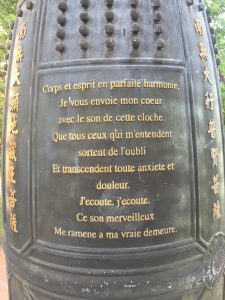
The poem inscribed on the large bell in Upper Hamlet, Plum Village.
Today was a strange day. I decided to skip morning meditation when my alarm went off at 5:30am. I woke instead at 8:30am missing breakfast and a chance to pack a lunch as well. I was surprisingly exhausted–I think a few of my shorter nights have caught up to me.
I’ve been in a weird mood. At the same time I think I’m starting to feel ready to leave but I’m also a bit nervous about returning to the stressors and distractions outside. I’ve found much here in Plum Village–peace, joy, love, compassion, self-knowledge, wisdom–and I fear losing all that I’ve gained as soon as I leave. At the same time, I’m excited to try and perhaps a bit anxious to start applying what I’ve learned to my normal life. I think perhaps a third week would have been too much for me–I’m starting to get used to the pattern here so some of it is losing its novelty and magic. Perhaps at some point I’ll try 3 weeks at a different monastery (Asia?) regardless just to be with those new impatient emotions.
There was a Q&A today and I got to ask my question about the conflict between truly loving and accepting something (or someone) and the desire to change it. In this case, I’m particularly interested in how we can truly love and accept the world while reconciling that with the desires we often have to change or improve it. It seems to me that a true love and acceptance implies no need to change something–if we need it to be different we’ve failed to accept it by definition. I’ve been wondering what the Buddha would have said about this, but the answer I got from a young nun simply challenged my definition of love/acceptance and state that when we accept something, action is a natural consequence. I’m not really convinced by her argument, but I will reflect on the answer she gave me nonetheless. She also recommended that I read True Love by Sister Chan Kong.
In other news, I’ve decided to accept the transmission of all 5 of the 5 Mindfulness Trainings. The ceremony is early tomorrow morning. I’m not yet convinced I agree with all of Buddhism or even all of the text in the mindfulness trainings, but I acknowledge that it seems to have gotten some things right and I see my taking the trainings as a commitment to continue to reflect on Plum Village ideals and to at least be mindful of what I say, do, and consume.
We also had tea meditation today which was by far my week’s highlight last week. I don’t think quite the same energy was there today–it’s hard to top that evening of music, joy, good company, and sunsets–but I’m grateful to have shared the experience with wonderful people nonetheless. This time I shared my gratitude with the family and also recited one of the beautiful poems written on the sides of the bells in the bell towers. This was a bit embarrassing, however, as they’re all in French and my pronunciation needs work :P.
Day 13 – Thursday, July 19, 2018
Today was my last real day in Plum Village–I depart tomorrow after lunch. The close of my stay here inevitably comes with mixed feelings. I’m nervous about whether or not I will succeed in my endeavor to bring my learnings here back through the shroud to the real world. I’m sad to say so many goodbyes. I’m confused by how deep yet how shallow my relationships here are–many of these people have touched my life and I feel that I have touched theirs, and yet I’m truly not convinced I’ll ever see any of them again, or that I’ll succeed in meaningfully keeping in touch. I’m grateful for everything I learned, for joyous moments with friends, for renewed courage to face my challenges with integrity. I’m ever restless despite learning here to slow down and really enjoy the moment.
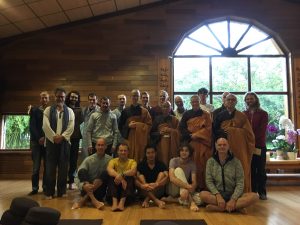
Group shot of the “Right Action” Dharma sharing family after the ceremony.
In the morning I participated in the ceremony to receive the transmission of all 5 Mindfulness Trainings. At the end of the ceremony I was given a certificate and the “Dharma Name” “Graceful Action of the Heart.” I can’t help but feel funny about how much like a baptism this felt, but I find myself oddly pleased with this name. I very much hope that my actions and my character will live up to it.
Aside from the ceremony, I skipped most of the day’s events, including the Dharma Talk. Instead, I opted to do some writing. I wrote a letter to my ex to whom I owe some gratitude for finding myself in Plum Village at all. I also started to write some things about my parents. There’s much to explore there and I am far from finished, but I think I have a good mental framework to follow.
I’m starting with gratitude. First I’m acknowledging all the things about myself that I appreciate, and then drawing a line between each of these and a similar attribute in my parents or ancestors so that I can express my gratitude to them for my gifts and see that they have them, too. After, I will acknowledge other things I admire about my parents or ancestors which I don’t find in myself but nevertheless appreciate. By starting with gratitude, I ground myself in the knowledge that my parents and ancestors have many wonderful strengths.
Next I’ll approach compassion. I want to acknowledge all the ways that my parents and ancestors suffer so that I can begin to feel understanding, love, and forgiveness for how their suffering has manifested. I will do this generally first, then zero in on how I specifically have caused my parents or grandparents to suffer. I will express my regret that I have caused this suffering. Then I’ll approach my own suffering and try, without blaming, to give voice to how my parents’ or ancestors’ actions or suffering have hurt me. It is important that I do this so that they can understand and have compassion and awareness as well.
Last, I’ll ask for support via specific actions that might help me suffer less and I’ll offer similar support the other way. It’s above all important that all of this come from a place of deep love and acceptance. I must not do it because I hope it will somehow change my parents or my relationship with them–I must truly do it for no other reason than that it’s the loving thing to do to acknowledge their strengths, express my gratitude, and take responsibility for the pain I have caused. This will all take time to get right.
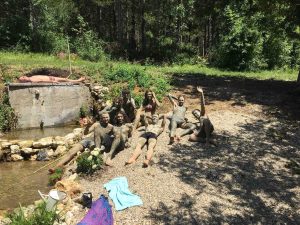
The squad after our successful transformation into mud monsters and trolls in the Upper Hamlet lake.
In the afternoon, I went swimming in the lake with a few friends. We enjoyed fooling around and caking mud on ourselves in the hopes that (maybe) the mud would be good for our skin. I don’t enjoy swimming in murky water, but I must admit that it was quite a bit of fun and that I was glad to be peer pressured into it.
Not long after I got back from swimming, we had our last dinner in our Dharma sharing families. It’s sad to have to say goodbye, but I’m very much glad that I stayed in this family a second week rather than attempting a switch to a French family (which would have been a complete disaster). Someone passed a contact sheet around, so maybe I’ll get to stay in touch. I forgot to take the time to personally thank our facilitator, Thay Phap Dung. He’s been a really integral part of my experience here and has been a source of strength, joy, and wisdom. If not for him, I’m not sure I would have stayed a second week. He joked with me at dinner that I should stay a third–apparently that sort of thinking is how he “accidentally” become a monk himself 20 years ago–though doing so isn’t possible at this time. I told him I’ll try to visit the Plum Village monasteries in Asia instead if I end up heading back out that way this year.
There was a beautiful ceremony after dinner called the Rose Ceremony. It’s apparently a tradition for appreciating one’s parents that Thay stole on a trip to Japan many years ago. There was a recitation of what Thay wrote when his mother died, and an opportunity for children (and adults) to read love letters to their parents.
The tradition is sort of like mother’s or father’s day except that we pin a red rose to our shirts for each living parent we have and a white rose for each deceased parent. Walking around the hall realizing how many people I had gotten to know had one or even two white roses was a powerful moment of mindfulness for me. I shed a few tears of compassion for their loss and reflected on my gratitude to still have two living parents.
The Rose Ceremony ended with hugging meditation, a wholesome experience where we all went around hugging our friends and loved ones for 3 deep, mindful breaths each, really enjoying and appreciating their presence. I had many nice hugs with friends I made here, but the one that really touched me the most was the little French boy who I had promised to teach to play chess and for whom I went out of my way to keep that promise. He had such a happy and joyful look on his face when we found each other in the crowd and he offered me a hug. I knew in that moment how much my doing that had meant to him. I’m really glad to have touched his life.
I also had a similar experience a few minutes ago when a Mexican teenager to whom I had taught some opening- and mid-game chess strategy noticed me writing this by the light of the bell tower and came up to personally thank me. I offered him a hug and asked him to keep playing and maybe even win a few games for me.
It’s time to sleep now as I need to pack and depart tomorrow. I’ll be returning to Bordeaux for a few days of sightseeing before 5 weeks in Lyon. My experience here in Plum Village was powerful and memorable. I understand now why so many people here have come back year after year. Perhaps one day I’ll be the same. Perhaps I’ll meet these friends here again.
Day 14 – Friday, July 20, 2018
(This entry is written after the fact based on some memories and conversations I had before leaving Plum Village on Friday, but which I felt were an important part of this narrative.)
I left Plum Village today and am now back in Bordeaux. The morning went mostly as I’d have expected: lots of goodbyes with friends as people left throughout the morning. Then lots more goodbyes as I prepared to leave myself.
I’m going to miss many of my friends from Plum Village, especially the ones that I know struggle more with certain things that either I’ve seen myself struggle with, or that I’ve seen people I love struggle with. Many of my friends here have expressed hardship with difficult human emotional experiences like anger (towards self, towards others, towards the world), anxiety, depression, self-confidence/self-love. I am at least grateful that I had a chance to be in their lives, however briefly, to listen compassionately and offer my love and support. Many of them are staying in Plum Village longer-term, either for the entire summer retreat, or even longer as volunteers. I can’t think of a better place for them to heal.
Before I left, I had a really fruitful conversation with one of the aspirants, who came to find me and follow-up on the question I asked during the Q&A about the tension between love/acceptance and action/change. I always enjoy chatting with this particular aspirant because he and I actually share a very similar background–we both graduated from Stanford, I think not too long ago; we both graduated with technical degrees that led us to work for the US government for some time; we both got involved in tech in Silicon Valley. I’d be surprised if he and I didn’t actually already have some mutual friends. It’s one thing to meet someone who aspires to become a monk but is completely different from me, and quite another to meet someone who I realize could very easily have been myself.
Anyway, he asked me what I thought of the answer I received during the Q&A. Apparently he recognized the somewhat crestfallen and dissatisfied look on my face at the end of the answer–a feeling I’m sure he’s shared more than once during his long stay in Plum Village. We ended up having an interesting discussion, grounded first in concepts we had both learned about self-love, self-acceptance, and self-growth and then generalized from there to see if we could understand how those concepts relate to loving and accepting the world while also potentially transforming it.
One of the large conclusions we drew was that both in self-love and in loving the world a sense of total love and acceptance does imply letting go of the need for uglier things to change or disappear. We both agreed, however, that the act of total acceptance in this way has a very meaningfully and very powerfully changes those things, so acceptance itself is an action of sorts. The difficulty here, however, is that one cannot choose to love and accept themselves with the intent that doing so will effect change because that very intent carries with it a lack of true love and true acceptance. I think the same can be said of loving the world.
The other thing I took from our conversation is that this love and acceptance for the negatives need not necessarily conflict with our positive aspirations. Often, getting to where we want to go involves accepting and transforming what’s already within us while simultaneously cultivating something new.
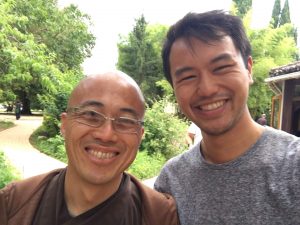
Me with Thay Phap Dung, an incredibly light-hearted and wise Buddhist monk living in Upper Hamlet, Plum Village.
I was very appreciative of our conversation. I felt like it gave me the resolution I had hoped for in the Q&A. I should admit also that this was the first conversation after which I had the serious thought that perhaps the idea of becoming a monk could be appealing for someone like me. After all, someone who thinks very similarly to me is doing it and I now see that his commitment to monkhood has given him access to helpful things like a mentor who reads his journal and helps him to see where he is struggling in his development. It’s also clear to me that he, like I, is interested in understanding what the concept of enlightenment might mean in practice rather than just in theory. Becoming an aspirant and, ultimately, a monk effectively makes pursuing this understanding his full-time job. I am, however, not yet convinced that becoming a monk is the only way to create the space and time to pursue this understanding. For now at least, I think becoming a Buddhist monk isn’t in my cards.
I said goodbye to Thay Phap Dung today. I caught him on his way out of the dining hall with his lunch. I just wanted to tell him how grateful I was for him, for his kindness, for his compassion, for his joy, and for his teachings. He invited me to eat my last lunch in Plum Village with him. I hope to meet this man again somewhere and someday, and I aspire to learn how to exude joy and compassion from a place of deep centeredness the way he has.
I’ve been able to maintain my mindful state today, even in the outside world. I found that on the train and on the tram to get to my new accommodations I was very calm, very unhurried, and actually just happy to sit and enjoy the ride rather than feel the need to automatically pull out my phone and occupy myself in some way. Hopefully I’ll continue to be mindful in the coming days, weeks, and months.
In leaving, I am not the same person I was when I arrived and in subtle ways I see the world differently now. I didn’t love everything about my experience in Plum Village, but on the whole it was incredible and I very much want to continue practicing what I learned. It’s hard to say how the future will unfold and where I’ll go, but I think it’s likely that I will be back to Plum Village, if not to the monastery in France then perhaps to the affiliated ones in Asia or America. As Thay Phap Dung joked before I left, perhaps my stay in Plum Village wasn’t a break from the outside world as much as the outside world is now a break between stays in Plum Village.
Footnotes
